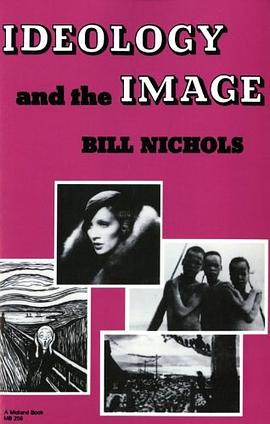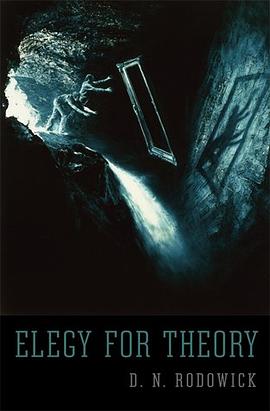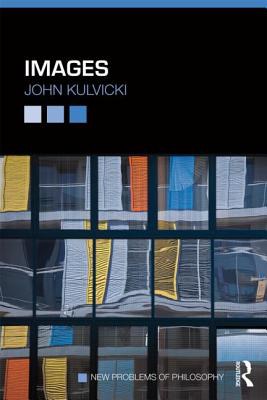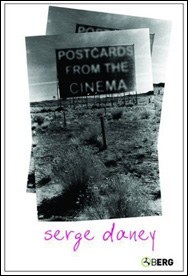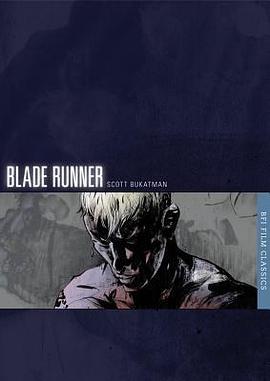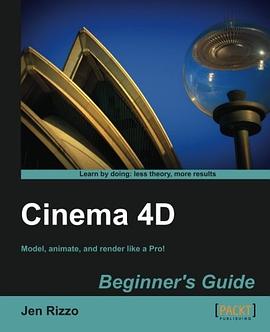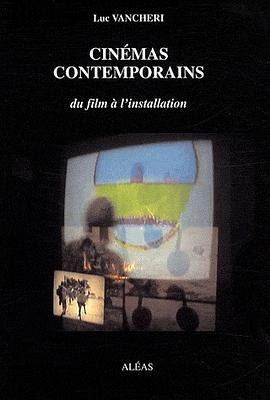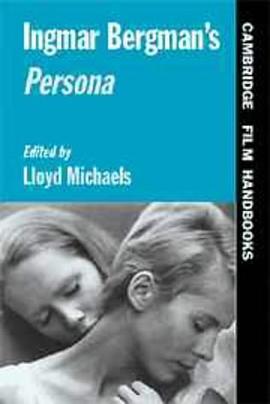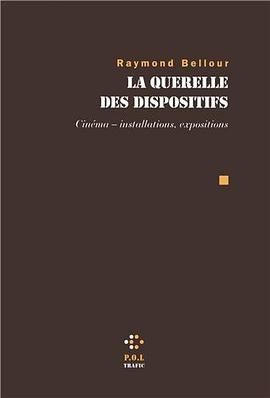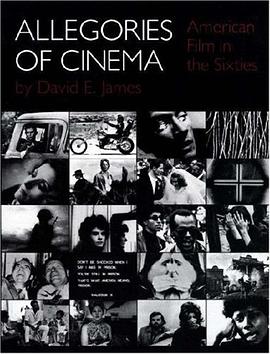

具体描述
"David James has written a comprehensive book that will excite both scholars and general readers. His political contextualization of the avant-garde cinema in America is superbly researched, lucidly written, and powerfully argued."--P. Adams Sitney, author of "Visionary Film: The American Avant-Garde" From Stan Brakhage and Andy Warhol to the underground cinema and political films, David James gives a thorough account of the growth, development, and decay of nonstudio film practices in the United States between the late fifties and the mid-seventies. Unlike other scholars who discuss these practices as totally separate from Hollywood, James argues that they were developed in various kinds of dialogue or negotiation with the commercial film industry. He also demonstrates that the formal properties of the films were determined not simply by aesthetic considerations but by the functions the films served in the various subcultures and dissident groups that produced them. After an opening chapter on film hermeneutics, the book gives detailed accounts of the contrary projects of two exemplary filmmakers: Stan Brakhage, who pioneered an artisanal, domestic film practice, and Andy Warhol, who redirected such a practice toward the film industry. James then discusses the beats and other idealist countercultures, the social groups that formed around civil rights and the Vietnam War, artists who shunned social involvement for pure film ("structural" film), and finally the women's movement.
作者简介
目录信息
读后感
评分
评分
评分
评分
用户评价
这部电影理论专著简直是为我这种沉迷于解读银幕背后深层含义的影迷量身定做的!我刚翻开它,就被作者那种近乎着魔的求知欲所感染。他没有流于表面地讨论那些光影的炫技,而是毅然决然地潜入了叙事结构、符号学和意识形态的幽深矿井。读起来就像是跟随一位经验极其丰富的向导,穿梭在一部部经典影片的迷宫中。书中对蒙太奇的分析尤其精彩,那不仅仅是简单的画面剪辑,而是一整套哲学思辨的载体。作者擅长将看似毫不相关的不同流派电影并置对比,从而揭示出潜藏在不同时代、不同文化背景下共通的人类困境和对“真实”的追问。尤其是他对黑白片中“光影对立”的论述,简直是醍醐灌顶,让我重新审视了那些我以为已经了然于胸的黑白影像的内在张力。这本书的行文风格是极其严谨而富有逻辑性的,每一个论点都建立在大量的文本分析之上,阅读过程是需要高度集中的,但每一次深入都能收获令人振奋的洞察。它强迫你跳出仅仅作为“观众”的舒适区,进入到“解码者”的艰辛而迷人的行列。
评分这本书的精彩之处,恰恰在于它对那些“不合时宜”的电影语言的关注。作者仿佛是一位考古学家,小心翼翼地挖掘出那些被主流评论史所忽略的、边缘化的叙事尝试和视觉策略。他对于电影中“非人类主体”的探讨尤其具有前瞻性,探讨了机器、景观乃至纯粹的光线本身如何在叙事中扮演了主动角色。行文上,它更偏向于一种散文式的哲学探讨,而非教科书式的条分缕析,这使得阅读过程充满了发现的乐趣,仿佛在进行一场智力上的探险。作者的句子结构往往很长,充满了从句和转折,但这并非为了炫技,而是为了精确地捕捉那些转瞬即逝、难以用简单语句概括的微妙的电影体验。读完后,我发现自己对“原创性”这个概念都产生了全新的怀疑——一切都是对既有结构的重组与变异。这本书不仅是关于电影的,它更像是一本关于感知、结构与意义生成哲学的工具书。
评分这本书的阅读体验,可以用“酣畅淋漓却又令人不安”来形容。作者毫不留情地撕开了许多我们习以为常的电影叙事背后的意识形态面纱,揭示了那些被美化和浪漫化的影像如何服务于特定的权力结构或社会期望。他对待经典作品的态度是既尊重其艺术成就,又不放过其潜在的意识形态漏洞,这种双重视角非常罕见。我尤其对其中关于“沉默与失语”在特定类型片中的作用分析印象深刻。很多时候,我们关注的是角色说了什么,而这本书则引导我们去听那些“没有被说出”的声音,理解影像如何通过缺乏对某些群体的代表性,来构造一种“可见的排斥”。虽然理论密度很高,但作者总能巧妙地穿插一些极富洞察力的案例分析,使得那些抽象的概念变得触手可及。读完之后,你再去重看那些影片,那种感觉就像是戴上了一副新的X光眼镜,一切都变得透明而复杂起来。
评分不得不承认,这本书的学术深度令人望而生畏,但正是这种对电影本体论的深入挖掘,才让它显得如此不可替代。它不满足于讨论“这部电影讲了什么故事”,而是执着于探讨“这部电影是如何成为它的样子的”,以及“这种‘成为’对我们意味着什么”。作者在书中构建了一套极其复杂的分析框架,涉及到了现象学、符号学以及后结构主义思潮对电影形式的渗透。我尤其赞赏其对“时间感”在电影中被重塑的论述,这远超出了简单的快进或慢放,而是关于记忆、预示与当下经验的复杂交织。对于任何想要严肃对待电影理论研究的人来说,这本书无疑是绕不开的一座里程碑。它要求读者拿出极大的耐心去消化那些精确到每一个术语的定义和推导,但一旦你适应了它的节奏,你会发现自己对电影的感知能力获得了质的飞跃,如同从二维世界进入了三维空间。
评分老实说,当我拿起这本书时,我本以为会是一本枯燥的学院派理论堆砌,但事实远比我想象的要生动得多,也更具有挑战性。作者的笔触带着一种近乎诗意的批判精神。他似乎有一种天赋,能从最晦涩难懂的电影片段中提炼出某种普世的、令人心悸的真相。我特别欣赏他对“观看行为”本身的解构。我们以为自己在主导观看,实际上我们是如何被镜头语言——那些不容置疑的凝视和剪辑节奏——所操纵和塑形的?书中详细梳理了从早期电影对观众“集体催眠”到现代反叙事对“信任瓦解”的演变过程,每一个章节都像是一次对我们既有观影习惯的温柔(有时甚至是粗暴的)审判。他的语言风格是那种混合了哲学思辨和艺术评论的交响乐,既有深厚的理论根基,又不失对电影艺术本身的热爱与敬畏。这本书绝不是茶余饭后的消遣,它更像是一份需要被反复研读的“使用说明书”,指导我们如何更清醒、更负责任地面对荧幕上投射的一切。
评分 评分 评分 评分 评分相关图书
本站所有内容均为互联网搜索引擎提供的公开搜索信息,本站不存储任何数据与内容,任何内容与数据均与本站无关,如有需要请联系相关搜索引擎包括但不限于百度,google,bing,sogou 等
© 2026 book.wenda123.org All Rights Reserved. 图书目录大全 版权所有




